Covering all bases
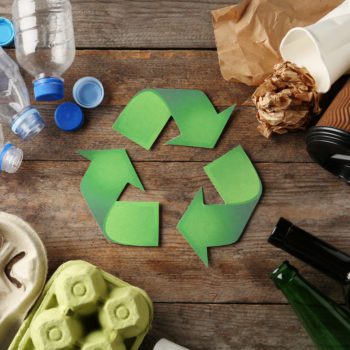
With consumers becoming ever more ethically and environmentally conscious, many companies are investing heavily in sustainable packaging to reach their targets of zero waste to landfill. Fionnuala Carolan reports on some of the latest technologies in recyclable packaging
30 May 2022
In line with public push-back against single-use plastic and plastic-dense packaging, brands have been stepping-up to the mark and removing single-use plastic from their ranges. And for good reason – ample research has been done on the influence of sustainable packaging on consumer purchasing decisions and brands understand that packaging matters.
Recent research from Bord Bia found that 76% of buyers say it’s important for suppliers to use sustainable packaging or reduce packaging waste, and 77% of consumers have made some effort to buy products with less packaging in last 12 months.
When Kantar asked Irish consumers about the most acceptable and effective solutions to reducing plastic waste, it found 72% endorse packaging that can be 100% recycled. What’s more, one report published by Drapers in partnership with Smurfit Kappa found that 64% of UK shoppers are more likely to purchase from a brand or retailer if it uses sustainable packaging. We look at the companies that are prioritising sustainability in packaging and leading the way in this space.
A forward-thinking approach
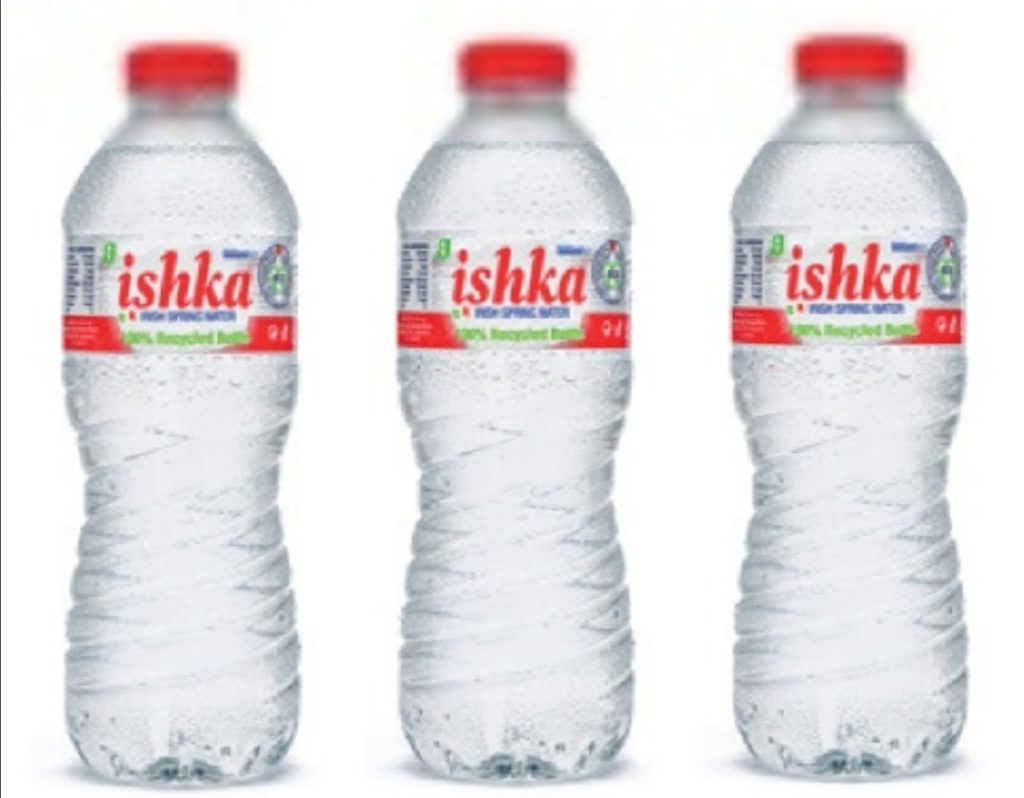
Ishka understands that packaging matters which is why all its bottles are 100% recyclable, including the cap
Much work at Ishka Irish Spring Water goes into thinking about the packaging it uses for its water. The company has chosen PET because it is still the most environmentally sustainable option.
The business is committed to minimising its environmental impact through a range of initiatives, including PET and lightweighting meaning that all Ishka bottles are 100% recyclable. Lightweight BPA-free plastics are used and bottles are blown on-site, reducing additional road miles.
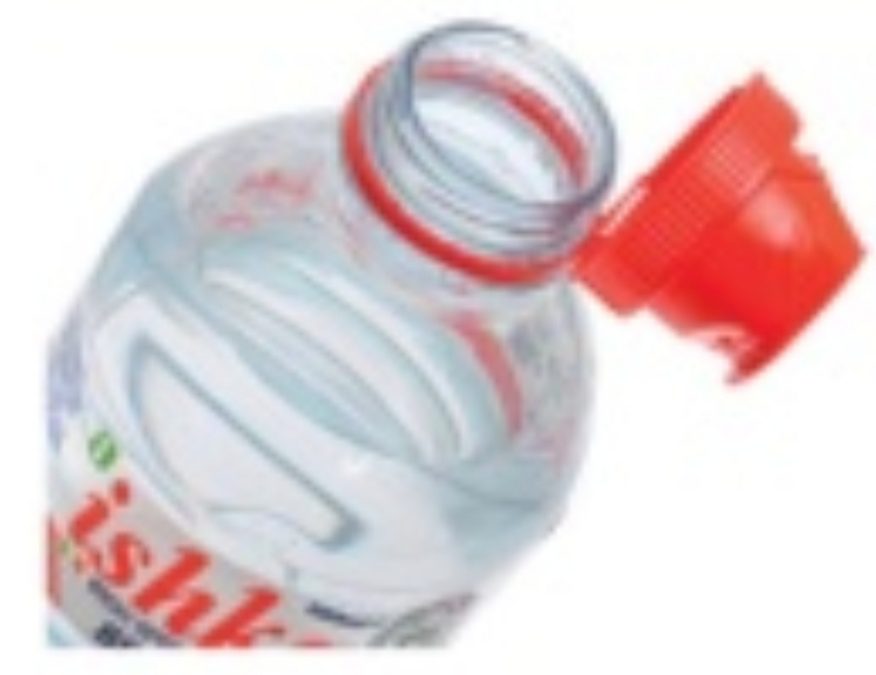 Ishka was the first Irish spring water brand to introduce a 100% recycled PET bottle. The company is also the first bottled water company in Ireland to introduce tethered caps, three years ahead of EU Directive.
Ishka was the first Irish spring water brand to introduce a 100% recycled PET bottle. The company is also the first bottled water company in Ireland to introduce tethered caps, three years ahead of EU Directive.
The company is determined to do all it can as a business to drive the necessary change in consumer behaviour to help solve the global waste problem and protect marine life.
The 40-year success story of Ishka Irish Spring Water, since 1978, has been due to its relentless drive for perfection in production and service to its valued customers – retail, wholesale, food service and vending. Flowing from its exclusive on-site natural springs and bottled on-site, in Ballyneety, County Limerick, Ishka Irish Spring Water certified spring water is unprocessed and untreated for maximum health and wellness benefits.
Ishka has a wide range of easy-to-store spring water multi-packs, making it convenient for shoppers to stay hydrated across a whole range of occasions. Ishka is licenced by the HSE, FSAI, Guaranteed Irish and is a member of Repak and Team Green. Guaranteed Ishka Irish Spring Water is now available in all main nationwide wholesalers and retailers from 250ml to 5L, in flat and sports cap.
For further information on any of the product ranges, contact info@irishspringwater.com or 061-450705
Legal obligations

As a packaging compliance scheme, Repak funds the recycling of packaging waste in order to help Ireland meet its packaging recycling targets and advises companies on best practice. In 2018, the European Union updated a number of directives covering waste, as part of its overall Circular Economy Package. As a result of these changes, the EU Packaging and Packaging Waste Directive (94/62/EC) was amended, with higher targets for packaging reuse and recycling to help increase recycling rates for all packaging placed on the market across Europe.
At present, Ireland meets all of the previous EU targets set in the Packaging & Packaging Waste Directive. In fact, we already exceed 2025 targets for wood (69%) and paper and cardboard (84%). However, the new plastic packaging recycling targets will be more challenging for Ireland to meet and present an opportunity for Ireland to change the way in which we manage these often complex materials, which currently have a recycling rate of 31% (Source: Repak estimates for 2021).
To achieve the new EU targets of 50% by 2025 and 55% by 2030 will require a dramatic change by all stakeholders in order to capture more of this material. This will require behavioural change amongst consumers, changes to how the materials are handled by businesses and treated by the waste industry, as well as investments in local plastic recycling infrastructure here in Ireland
In 2020, Repak saw a 3.5% decline in the tonnes of backdoor plastic packaging waste it funded versus 2019. This is most often due to poor waste segregation practices on site. Although this decline is a concern, it must also present a significant opportunity to increase plastic packaging recycling rates, given that almost 50% of all packaging waste generated in Ireland arises at commercial premises.
What can you do?
First of all, it is important to note that there are legal obligations on Irish businesses when it comes to the segregation of packaging waste. Regulation 5 of the European Union (Packaging) Regulations 2014 as amended states that: – Producers should ensure that packaging waste is separated at source, by material type. – Packaging waste should be collected by a contractor for the purposes of recycling. It is important, therefore, that your business is segregating all recyclable packaging. Plastic packaging materials such as plastic pallet wrap, shrink hoods, case wrap and pallet sheets should be separated from other types of waste. If in doubt about what your waste contractor will accept in the recycling bin or in bales, ask them for their assistance. It is also essential that these recyclable materials are kept as clean and dry as possible, so that they are suitable for recycling at the point of collection.
A list of waste contractors (Repak-approved recovery operators) is available on Repak’s website at www.repak.ie. If you need any additional support, you can also contact the packaging services team at Repak at preventandsave@repak.ie or telephone (01) 4670190
Zero waste to landfill
Molson has set global packaging targets to ensure that 100% of its packaging is reusable, recyclable or compostable by 2025. This year it hit its target of removing all single use plastic from across its major brands, helping the company to remove more than 700 tonnes of single-use plastic from its operations through changes to packaging and minimising waste. Across its UK and Ireland territory, all of its production sites are zero waste to landfill including its Franciscan Well Brewery in Cork.
Do a sustainable spring clean
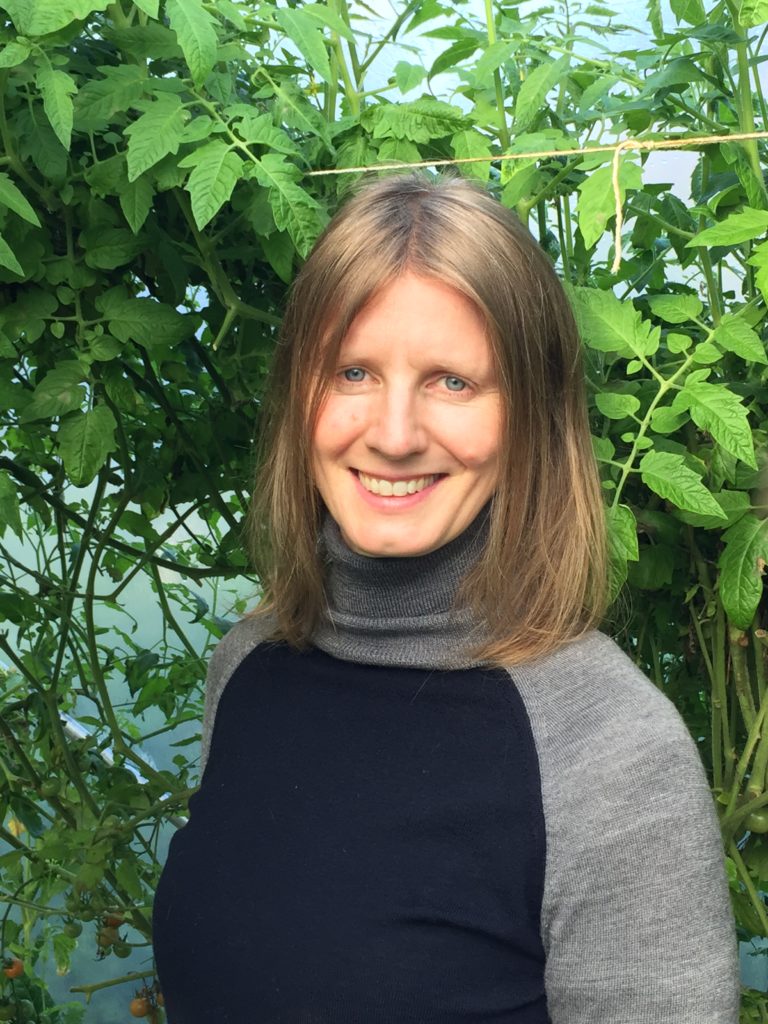
Dr Ann Marie Mahon, lead research scientist at Vivagreen
VivaGreen, an Irish company based in Deansgrange, Co. Dublin, has been manufacturing eco-friendly household and garden products for over 25 years. Its Tru Eco range of household and laundry cleaners are made from plant based biodegradable ingredients and each dispensing bottle is made from 100% recycled plastic, which is reusable, recyclable, and refillable making it a circular economy product. Tru Eco is stocked in over 250 stores nationwide with over 80 of these stores offering refill solutions.
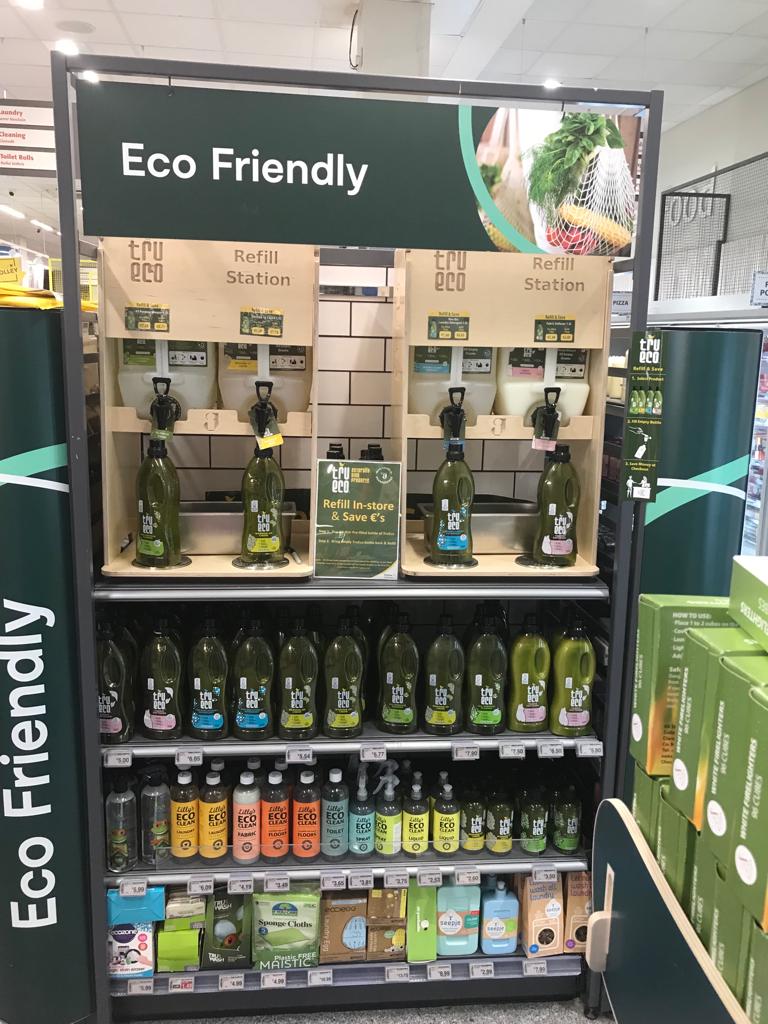
A Vivagreen refill station in SuperValu
Russell Walsh co-founder of VivaGreen says: “One of our main goals is to make refilling mainstream. Since launching in late 2020, our Tru Eco range has prevented over 500,0000 bottles from going to landfills through the simple process of refilling. By refilling people reduce their environmental footprint, minimise plastic and lower carbon emissions.”
VivaGreen offers customers an easy swap from conventional harmful products to Irish made, high quality, eco-friendly alternatives that are green and safe as well as effective and affordable.
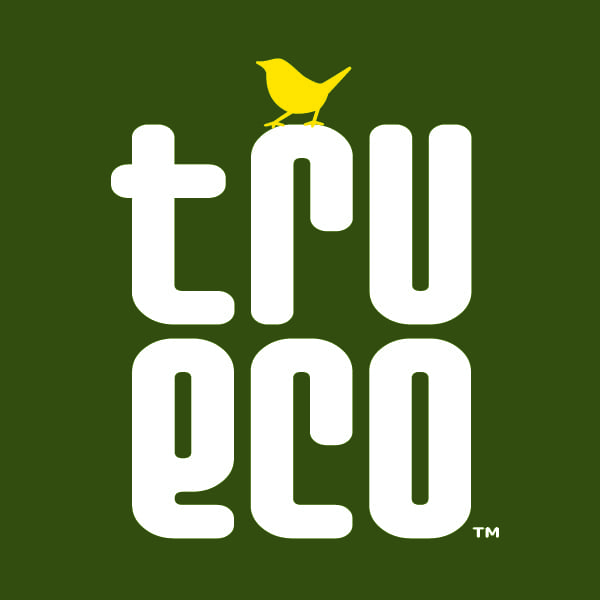 Walsh adds: “People want to cut down on their plastic waste and they are concerned about hazardous chemicals. We see our refill solution like the plastic bag levy – you buy our Tru Eco product once and then you return to refill your empty bottle in-store at a cheaper cost. This not only saves people money, but it reduces plastic waste in our communities and supports small Irish businesses.”
Walsh adds: “People want to cut down on their plastic waste and they are concerned about hazardous chemicals. We see our refill solution like the plastic bag levy – you buy our Tru Eco product once and then you return to refill your empty bottle in-store at a cheaper cost. This not only saves people money, but it reduces plastic waste in our communities and supports small Irish businesses.”
The introduction of bespoke Irish made Tru Eco Refill stations in select SuperValu stores have been received well resulting in more stores getting in touch to offer Tru Eco refill stations to their customers.
VivaGreen plans to introduce more products to its Tru Eco range. Recognised for its innovation, resilience, and success, VivaGreen won the Home, Beauty & Lifestyle Award at the Guaranteed Irish Business Awards held in March and was also shortlisted for awards at the recent Small Firms Association Awards and Green Awards events.
For more information and its full range of eco products and bespoke Tru Eco refill stations, visit vivagreen.ie or call David Kelly on (01) 9059909.
The only way is recycling
A recent study found that 65% of the population* believe that food and nutrition brands need to do more to protect the planet, a number that is only set to grow in the coming years. With consumers becoming more ethically and environmentally conscious, building brand trust is crucial. This means that sustainability pledges and data need to be tangible, accessible and, most importantly, transparent.
At Yazoo, it takes its commitment to sustainability very seriously. Its parent company FrieslandCampina has strong sustainability credentials that go beyond merely adhering to existing regulations to setting new standards. FrieslandCampina is the only dairy cooperative that provides complete and credible GHG emissions data. It is creating the benchmark with a unique biodiversity monitoring system through a collaboration with WWF and Rabobank.
Sustainability is one of FrieslandCampina’s four strategic priorities. The ‘Nourishing a better planet programme’ entails the business working on all aspects of sustainability (including climate, biodiversity, adequate nutrition and recyclable packaging), with the ultimate goals being to achieve net climate neutrality by 2050 and above all to be able to keep providing healthy nutrition to a growing world population.
All Yazoo bottles in the core range are now 100% PET. They also feature ‘easy peelable sleeves’ to make stripping and correct recycling simpler. This packaging upgrade enables the company to save over 32 million kilograms of non-recycled plastic on the Yazoo brand alone. This is a significant step along the path to its goal of making 100% of its packaging recyclable or reusable by 2025.
This commitment to becoming a more circular brand can be seen in its recent roll-out of Tetra Pak cartons and industry first bendable paper straws across the no added sugar range. Innovation like this is key to building a sustainable brand. FrieslandCampina’s ‘Plesstics’ project led to the development of recyclable packaging films now used across the brand stable. Although this is proprietary technology, they have not patented it, as they want the wider food industry to benefit from it to reduce plastic landfill waste. The company knows consumers value this approach too, with ‘eco active’ shoppers (those who feel an intrinsic responsibility to reduce their waste) now worth £37bn to the UK grocery market**, and the top 20 eco-active brands growing at more than double the rate of FMCG***.
When it comes to Yazoo’s sustainability pledge, the contents of its bottles are just as important as the packaging. In 2021, all the cocoa used in Yazoo Original Chocolate and Choc Caramel flavour became Rainforest Alliance certified.
Later this year, Yazoo is planning to replace its HPDE bottles with Tetra Pak for some of its key product lines. There are other changes on the way too – soon all on-the-go Yazoo bottles will feature a tethered cap to help reduce littering, and they are also updating the sleeve removal mechanic. These updates will make it even easier to recycle each bottle unit.
*(Source: Taken from Frieslandcampina Ingredients Report, FrieslandCampina Ingredients report highlights adult nutrition trends for 2022 – foodnavigator.com)
**(Source: Kantar – Total FMCG – Top 10 Growing Categories – Values Sales CAGR – 2007 to 2014 (filtered to categories worth more than £100m annually) https://www.iatp.org/emissions-impossible
***(Source: Kantar, Europanel, GfK – Who Cares, Who Does 2021)
The world’s first tethered caps on carton packages
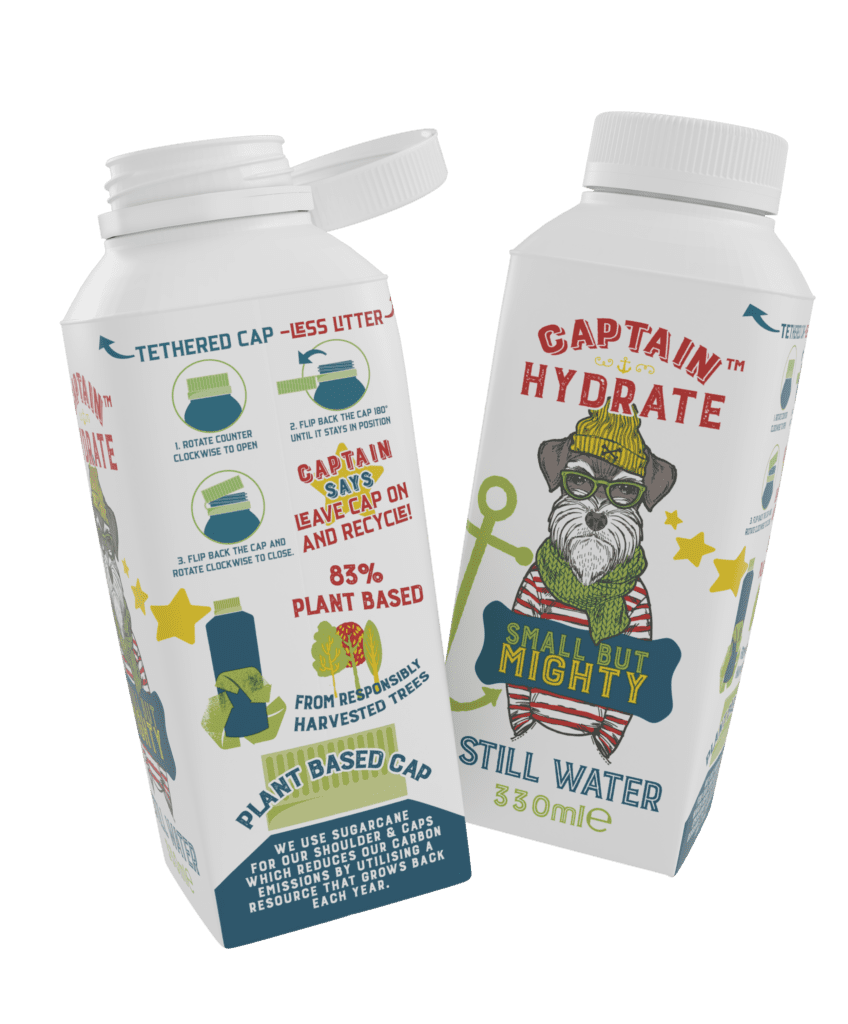
The new caps, introduced by BBL in Ireland have been designed to prevent litter and accelerate transition to renewable materials
Joining forces with leading beverage producers, Tetra Pak is launching tethered caps on carton packages. Marking a significant milestone in the company’s long-term work on design for recycling, five new tethered cap solutions are currently being introduced across Ireland, the Baltics, Spain and Germany in different product categories – a market first for these geographies. As part of a wider programme, this development paves the way for Europe-based customers to stay ahead of schedule and meet the Single Use Plastics (SUP) Directive coming into force by 2024.
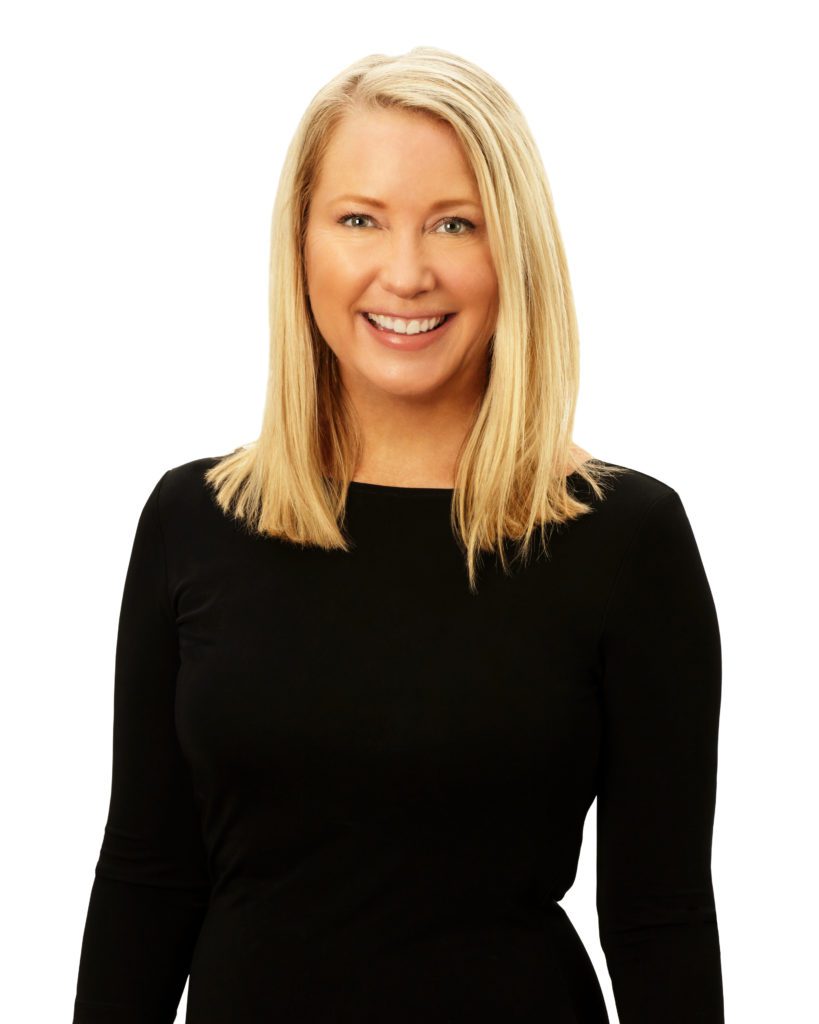
Julia Luscher, vice president marketing, Tetra Pak, says it is helping companies ‘walk the talk’ towards their sustainability ambitions
Julia Luscher, vice president marketing, Tetra Pak, says: “We are delighted to be supplying a number of customers with tethered cap solutions, helping them to ‘walk the talk’ towards their sustainability ambitions. Understanding our customers’ needs and having collected consumer insights through multiple pieces of research across various markets, our new tethered caps have been designed to enhance convenience. For instance, they are easy to open and re-close for subsequent consumption, while featuring carefully sized diameters for smooth pouring and drinking.”
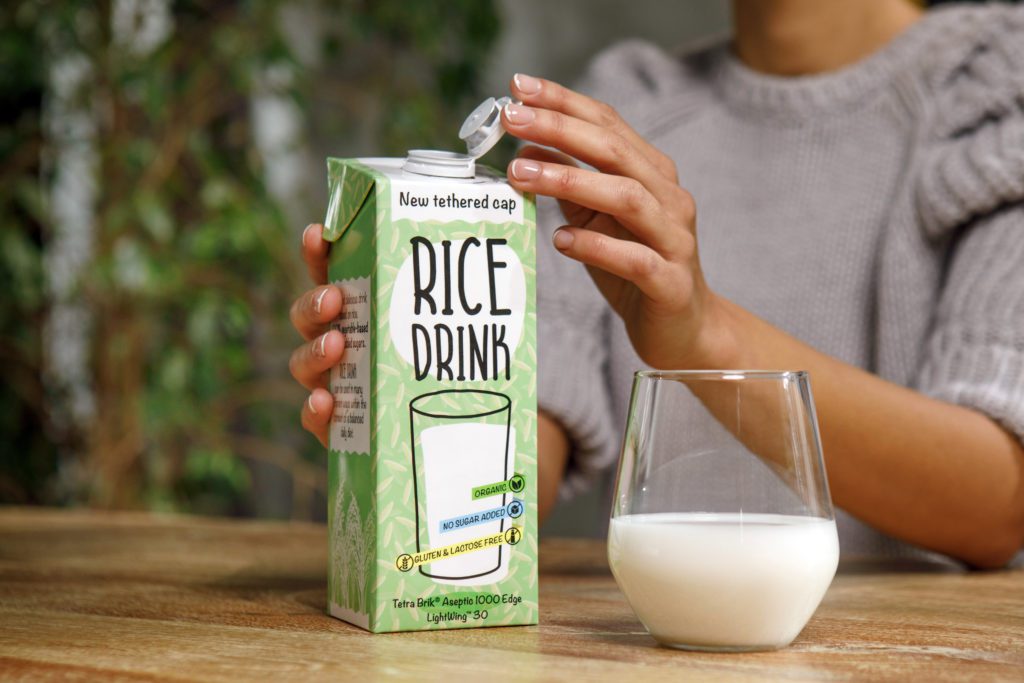 Tethered caps play an important role in preventing litter, as the cap will stay attached to the package. They could also help reduce the carbon footprint of the carton when they are chosen by food manufacturers as plant-based options, made from polymers derived from responsibly sourced sugarcane, thereby increasing the renewable content of the package. Additionally, a majority of Tetra Pak’s tethered cap portfolio features a reduced amount of plastic. Depending on the various solutions, the company achieved a plastic content reduction ranging between 7% and 15%.
Tethered caps play an important role in preventing litter, as the cap will stay attached to the package. They could also help reduce the carbon footprint of the carton when they are chosen by food manufacturers as plant-based options, made from polymers derived from responsibly sourced sugarcane, thereby increasing the renewable content of the package. Additionally, a majority of Tetra Pak’s tethered cap portfolio features a reduced amount of plastic. Depending on the various solutions, the company achieved a plastic content reduction ranging between 7% and 15%.
Marco Marchetti, vice president packaging materials, sales and distribution solutions, Tetra Pak, adds: “Starting with these five new introductions, we are planning to equip approximately 300 packaging lines with tethered caps in Europe by the end of 2022. Considering the scale of change required across the value chain, early collaborations like these are putting the food and beverage industry on a fast track to accelerate the transition to a low carbon circular economy.”
In May, Borrisoleigh Bottling Ltd (BBL) is set to start commercial production of the new plant-based C38 Pro tethered cap on Tetra Top 330 and Tetra Top 500 carton packages. Based in Ireland, BBL is an experienced and awarded water producer, who’s seeking ‘to lead the industry towards a more responsible and sustainable future’.
The company has also heavily invested towards an improved manufacturing experience for customers. Tetra Pak’s new high quality, automated production lines for tethered caps utilise Artificial Intelligence technology for increased efficiency.
Marchetti says: “We are on a journey towards creating the world’s most sustainable food package, a carton that is fully made from responsibly sourced renewable or recycled materials, is fully recyclable and carbon-neutral. We are ramping up investment in the development of alternative solutions across our packaging portfolio such as tethered caps and other drink-from systems, to reduce littering while increasing the renewable share of our cartons.”
“In total, we are investing around €400 million in the development and roll-out of tethered cap solutions, including a €100 million investment last year in our Châteaubriant plant in France to accelerate the production of tethered closures.”



 Print
Print

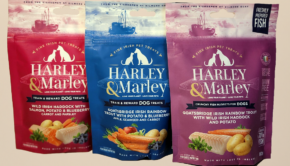




Fans 0
Followers